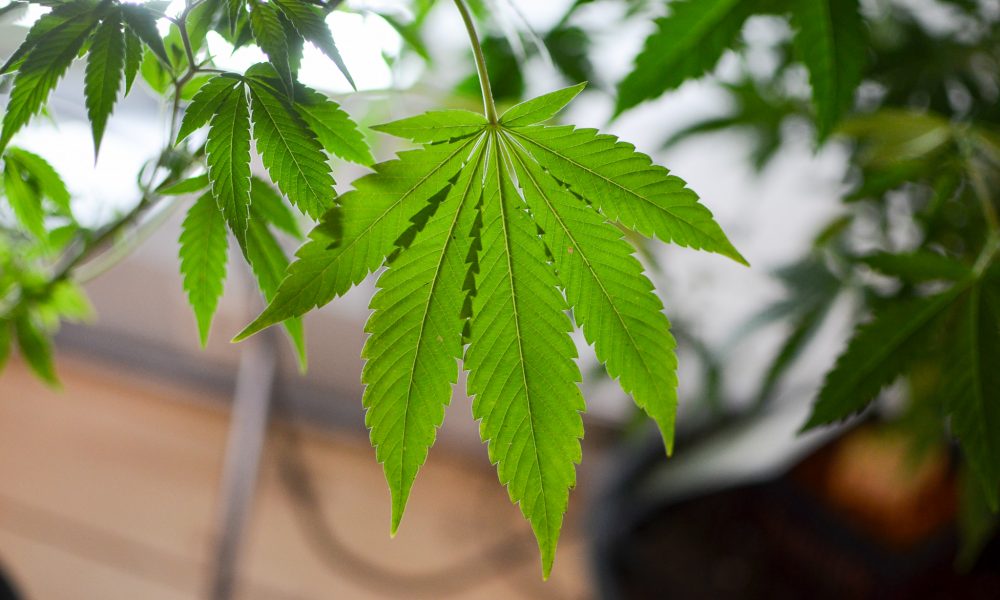A Hawaii Senate-passed bill to legalize marijuana has stalled out in the House for the year—but advocates are shifting focus to 2024, hoping to enact the reform in the second half of the two-year legislative session.
The legislation from Sen. Joy San Buenaventura (D) cleared the Senate earlier this month, and hopes were high that it’d make it through the House as well. But a hearing wasn’t scheduled before a deadline for bills that have been referred to three or more committees, meaning it will need to wait until next year to potentially advance further.
The session hasn’t ended yet, so the bill won’t have to go back to the starting line in the Senate next year. This could also give on-the-fence House lawmakers more time to discuss and refine the legislation, as Speaker Scott Saiki (D) previously said he’d like to do over the summer.
In the Senate, the measure was amended in several important ways that advocates support, including the addition of expungements language. Rep. Jeanne Kapela (D), who sponsored a separate legalization bill that did not advance, said the amended proposal represents an “incredible compromise.”
Still, the inaction in the House comes as a disappointment for advocates who’ve push for expedited passage of the reform in the Democratic-controlled legislature, and with a governor who backs legalization.
“It’s disappointing but not surprising that House leadership has failed to consider moving adult-use cannabis legalization forward this year,” Nikos Leverenz of the Drug Policy Forum on Hawaii told Marijuana Moment. “Important medical cannabis reforms like employment protections for patients have been recommended by working groups and task forces and not acted upon.”
“Hopefully those in the House who oppose rational reforms will come forward and disclose why Hawaii residents deserve less than those in other states,” said Leverenz, who served on a state task force that examined cannabis issues last year.
Similarly, DeVaughn Ward, senior legislative counsel at the Marijuana Policy Project (MPP), told Marijuana Moment that advocates are “disheartened” that the House “refused to hold a hearing on a legalization bill that passed by a solid majority in the Senate.”
“MPP and other advocates will be counting on House leadership and committee chairs to keep their word and work on the bill in the off-session,” he said. “We’re hopeful 2024 will be the year Hawaii legalizes.”
Kevin Sabet of the prohibitionist organization Smart Approaches to Marijuana, on the other hand, celebrated the fact that “legalization will fail in Democratic-controlled Hawaii again this year.”
BREAKING—Marijuana legalization will fail in Democratic-controlled Hawaii again this year! Congrats to our coalition- press release and op-ed to follow.
— Kevin Sabet (@KevinSabet) March 22, 2023
Here are some of the main components of SB 669, as amended:
Adults 21 and older would be allowed to purchase and possess up to 30 grams of cannabis and grow up to six plants, only three of which could be mature, for personal use. Adults could also gift marijuana between each other.
An independent Hawaii Cannabis Regulatory Authority would be established under the Department of Health to regulate the industry, as well as the existing medical marijuana program.
The market would initially launch through a pilot program whereby existing medical cannabis dispensaries would be able to obtain a dual license to serve both patients and adult consumers.
Marijuana products would be subject to a 10 percent tax, with revenue going to the state treasury. Cannabis businesses would also be able to deduct businesses expenses as part of the state income tax.
Under a substitute amendment that was adopted, a prior ban on cannabis vaping products was removed from the bill.
Language providing a pathway for expungements of certain prior marijuana convictions was added, much to the relief of activists who had criticized the omission of such provisions in the as-introduced version.
Civil penalties for unlicensed cannabis business activity were also added at the request of the state attorney general’s office. Also, lawmakers adopted a requested change to add a track-and-trace requirement for marijuana products.
To mitigate the risk of creating a monopolized industry, the bill as revised sets caps on the number of marijuana businesses that individual entities could own. There are also new limits on the size of licensed cultivation facilities.
Adults could not consume marijuana any place where tobacco use is prohibited in the state. Also, condominiums could restrict cannabis smoking in the same way that they’re able to do with tobacco.
—
Marijuana Moment is tracking more than 1,000 cannabis, psychedelics and drug policy bills in state legislatures and Congress this year. Patreon supporters pledging at least $25/month get access to our interactive maps, charts and hearing calendar so they don’t miss any developments.![]()
Learn more about our marijuana bill tracker and become a supporter on Patreon to get access.
—
Legislators have worked to enact legalization in the Aloha State over several sessions, but while the reform was approved in the Senate in 2021, it stalled after failing to proceed past a House committee by a key deadline.
Advocates struggled under former Democratic governor, Dave Ige, who has resisted legalization, in part because he said he was reluctant to pass something that conflicts with federal law. That’s despite the fact that Hawaii has a medical marijuana system that allows people to grow and sell cannabis in contravention of broad federal prohibition.
But now that Gov. Josh Green (D) has been sworn in, activists are feeling emboldened. He said in November that he’d sign a bill to legalize cannabis for adults and already has ideas about how tax revenue from marijuana sales could be utilized.
Hawaii’s Senate and House also approved a series of psychedelics reform bills this month, primarily focused on promoting research to set the state up to potentially allow regulated access down the line.
New York Governor Proposes Bill To Increase Enforcement Against Illicit Marijuana Operators As State Works License Retailers
Photo courtesy of Philip Steffan.
Read the full article here

